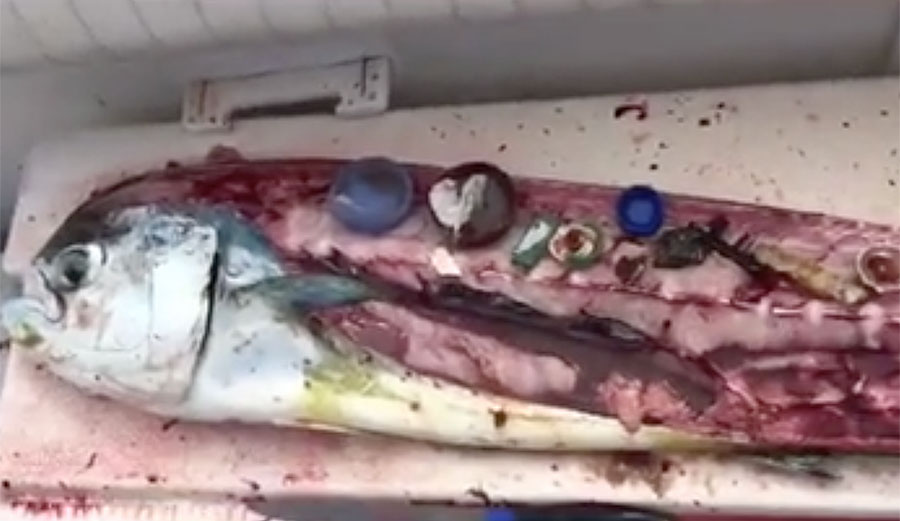Fishing is good, if you do it right. Good, healthy food, an appreciation for where what you’re eating came from, and it probably came with a good day on the water. That day, though, would probably be a little marred if you cut open your fish and found that it had been gorging on plastic.
Such was the case for a fisherman in Costa Rica. After catching a dorado (or a mahi mahi, or a dolphinfish, or whatever you want to call it), he found an unexpected surprise while gutting it: a stomach crammed full of bottle caps, jar lids, a comb, a lighter, and a bunch of other stuff. Now, you may not be a dorado expert, but it should come as no surprise that lighters are generally not on the menu.
The plastic plague has become big news in the last few years, mostly because people finally realized just how much of it was floating around out there.
“Production and dependence on plastic has surged at an astonishing rate in the past 50 years,” wrote The Inertia back in 2016. “In 1964, 15 million tons of plastic were produced for packaging worldwide. By 2014 that number had ballooned to 311 tons in a year, which should double again in just another 20 years. The positives, in an economic sense, are massive. Plastic packaging preserves our food, cutting down on wasted produce or meats, extending shelf lives, and makes transportation of goods much more efficient. But the price tag of convenience is quickly approaching a tipping point for our planet, as almost 100% of the packaging material people use today only serves us once before becoming waste itself. And in the literal price tag sense that equates to as much as $120 billion of plastics annually.”
Hoo boy, that’s a lot of plastic! According to one horrifying study, the ocean will officially have more plastic than fish in it by 2050—unless, of course, we do something about it. And you know what? It kind of seems like we might! In December of 2017, more than 200 countries all banded together and signed a U.N. resolution in Nairobi that will eliminate plastic pollution in the sea. According to Reuters, it’s “a move some delegates hoped would pave the way to a legally binding treaty.”
Marine scientist Erick Ross believes that fish often eat plastic because it looks a bit like food. “The plastic does not melt and can block their intestinal tract,” he said, “and then they cannot feed – preventing them from consuming food, and starving [them to death].”
For a video, click over to the Daily Mail.


